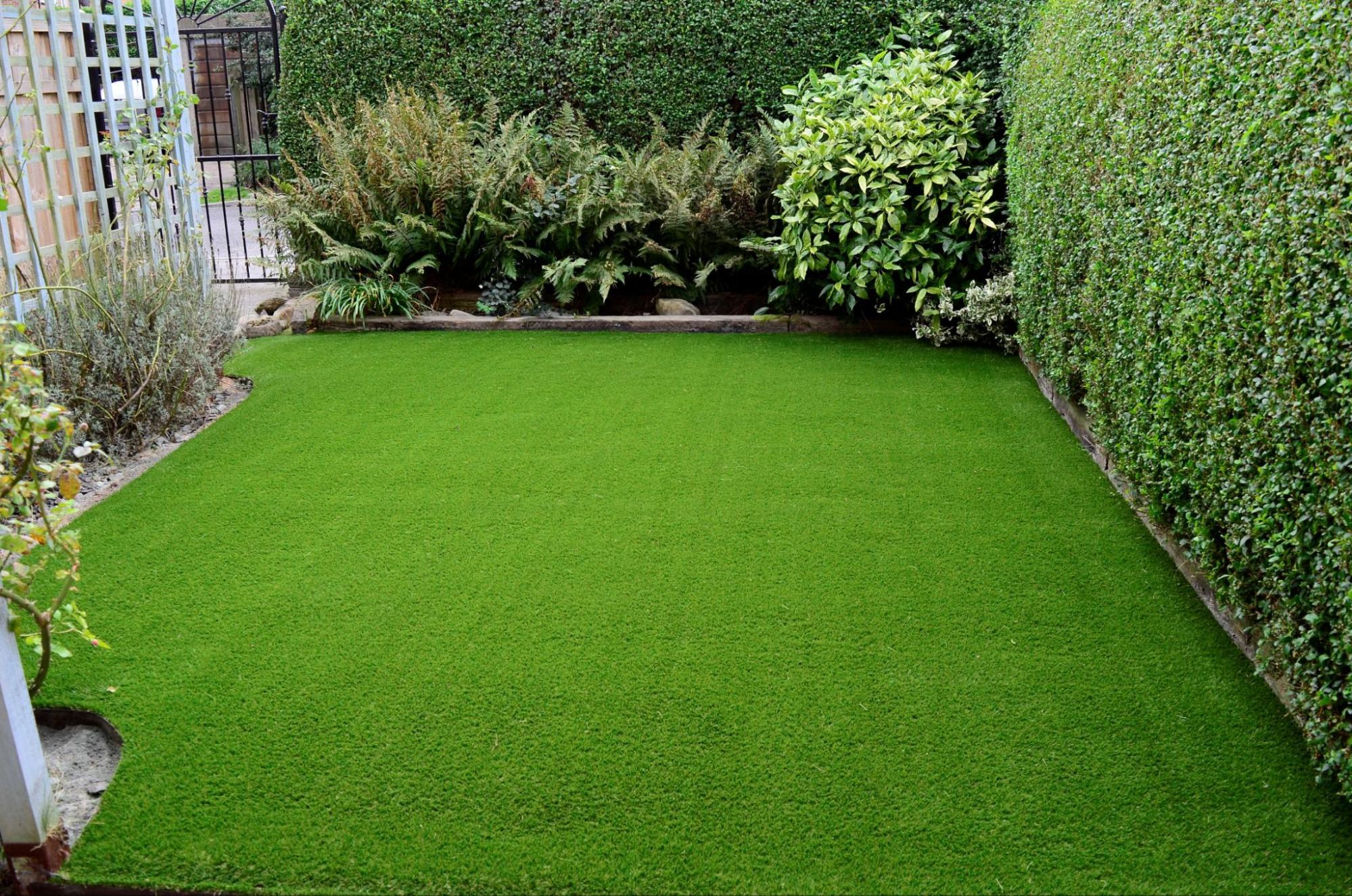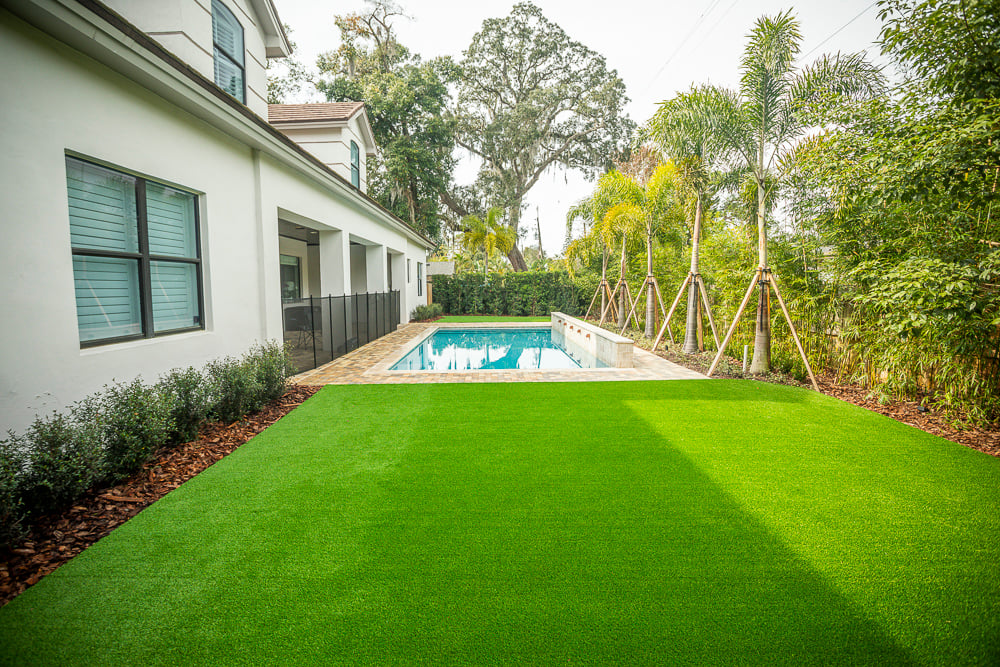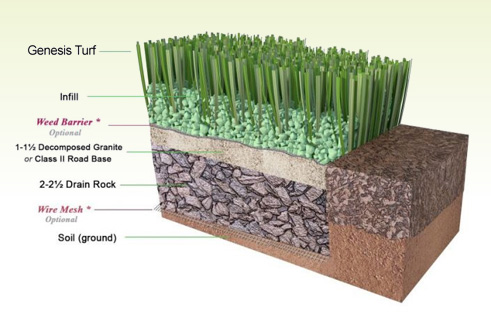Weather-Resistant Arizona Artificial Turf for Residential and Commercial Applications
Weather-Resistant Arizona Artificial Turf for Residential and Commercial Applications
Blog Article
Delve Into the Environmental Advantages of Opting for Synthetic Grass Solutions
The adoption of artificial turf options offers an engaging chance to deal with pressing environmental obstacles. By significantly minimizing water usage and lessening the application of damaging chemicals, these options not only promote lasting landscape design however also protect local ecological communities. Moreover, the lower carbon footprint related to decreased maintenance tasks contributes to a much more lasting method to land monitoring. The ramifications of these advantages prolong beyond mere preservation initiatives, increasing inquiries concerning their lasting effect on environment conservation and general eco-friendly balance. Checking out these dimensions exposes a complicated interaction worth considering.
Water Preservation Advantages
One of one of the most considerable benefits of artificial turf is its capability to save water. Typical turf lawns call for considerable irrigation, particularly in locations prone to drought or water restrictions. In contrast, man-made turf does not require watering, considerably lowering the general demand for water resources. This function is particularly beneficial in arid regions where water scarcity is a pressing worry.
By eliminating the need for regular watering, synthetic grass adds to sustainable landscape techniques and helps mitigate the ecological influence of excessive water consumption. In addition, the conservation of water includes the reduction of overflow, which can result in dirt disintegration and river air pollution.
In addition, the setup of synthetic grass enables house owners and districts to assign water sources a lot more efficiently, focusing on necessary usages such as drinking water and farming. The shift in the direction of synthetic lawn not just advertises responsible water use yet likewise straightens with more comprehensive environmental objectives focused on preserving natural deposits.
As neighborhoods increasingly focus on sustainability, the water conservation benefits of synthetic grass present an engaging situation for its fostering in property and business landscaping tasks.
Minimized Chemical Use
The change to artificial grass considerably decreases the dependence on chemical treatments typically made use of in all-natural turf maintenance. Conventional grass monitoring typically entails the application of pesticides, herbicides, and fertilizers to promote development and control parasites. These chemicals can pose dangers to human health, neighborhood wild animals, and the atmosphere, adding to dirt and water contamination.
In comparison, fabricated grass eliminates the demand for these damaging materials. By decreasing the release of synthetic compounds right into the community, artificial lawn promotes healthier soil and water systems.
In addition, the lack of chemical drainage connected with man-made turf installments aids safeguard neighborhood rivers from contamination, sustaining marine life and preserving biodiversity. Artificial turf companies phoenix. As areas significantly focus on sustainable methods, going with synthetic grass provides a feasible service that straightens with environmental conservation objectives. Through this shift, home proprietors can appreciate lavish environment-friendly rooms without endangering eco-friendly health, paving the means for a more sustainable future
Lower Carbon Impact

Furthermore, the setup of fabricated lawn can result in significant water conservation. All-natural grass need significant quantities of water for irrigation, which not just includes in the carbon impact related to water removal and treatment yet also stress local water sources. In comparison, synthetic grass requires very little upkeep, calling for no watering, therefore significantly lowering water use and its associated power prices.
In addition, the durability of synthetic grass adds to its decreased carbon impact. With a life-span of as much as 15 years or even more, the need for regular replacements is lessened, causing less waste and reduced power usage in manufacturing and getting rid of typical grass choices. Overall, synthetic grass presents a sustainable choice for environmentally conscious landscaping.
Habitat Conservation
Environment preservation is an important factor to consider in the argument over landscaping choices, particularly when comparing synthetic grass to all-natural lawn. All-natural lawn lawns typically require considerable maintenance, including the usage of next herbicides, chemicals, and fertilizers, which can adversely impact local communities. These chemicals can seep right into the soil and waterways, damaging indigenous flora and fauna and disrupting regional habitats.
In contrast, fabricated grass provides an opportunity to decrease the eco-friendly impact of landscaping. By going with synthetic grass, homeowners can decrease the disturbance of all-natural habitats connected with typical lawn care practices. Synthetic grass gets rid of the need for unsafe chemicals, thus protecting close-by wildlife and keeping the integrity of bordering ecosystems. In addition, the installation of synthetic grass can cause the conversion of previous lawn areas right into even more biodiverse landscapes, such as pollinator gardens or indigenous plant locations, which can sustain local wildlife.
Inevitably, the transition to man-made grass not just conserves water and reduces upkeep efforts but likewise promotes a much more unified partnership in between human activities and the all-natural atmosphere, advertising habitat preservation at the same time.
Long-Term Sustainability
Long-lasting sustainability is an essential variable in assessing the advantages of synthetic grass over traditional yard lawns. One of one of the most substantial benefits of synthetic grass is its longevity; it can last up to 15-20 years with minimal upkeep, whereas all-natural yard needs frequent reseeding and replacement. This longevity lowers the demand for consistent sources, such as water, plant foods, and pesticides, which are vital for maintaining a healthy grass yard.
Furthermore, synthetic grass contributes to a reduction in carbon emissions associated with yard treatment devices. Standard lawns typically call for gas-powered mowers, leaners, and blowers, all of which add to air contamination. Artificial turf companies phoenix. On the other hand, synthetic turf eliminates the need for such devices, advertising a cleaner atmosphere
Furthermore, the manufacturing of man-made turf progressively utilizes recycled materials, improving its sustainability profile. As producers take on environmentally friendly methods, the ecological footprint of synthetic grass continues to lessen.

Final Thought
The fostering of synthetic grass remedies offers significant ecological advantages, including significant water preservation, lowered reliance on damaging chemicals, and a reduced carbon footprint. Synthetic lawn aids in preserving natural habitats by decreasing land disruption and promoting long-term sustainability through the usage of sturdy materials. Collectively, these factors underscore the potential of synthetic grass to contribute favorably to ecological health and provide a sensible alternative to typical landscaping methods in a significantly resource-conscious world.
In contrast, synthetic lawn does not require watering, considerably lowering the overall need for water sources. By reducing the release of artificial substances into the community, synthetic lawn advertises much healthier soil and water systems.
Additionally, the setup of fabricated turf can result in substantial water conservation. In comparison, man-made lawn requires marginal upkeep, needing no watering, consequently significantly lowering water usage and its associated energy prices.

Report this page